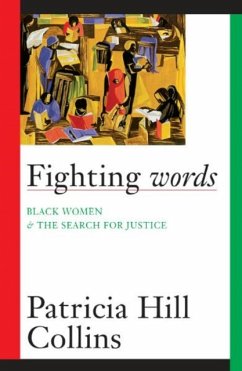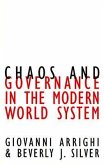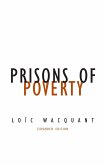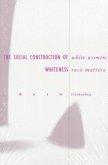When Black Feminist Thought by Patricia Hill Collins was published in 1990, reviewers called it "remarkable", "rich and valuable", and proclaimed, "with the publication of this book, Black feminism has moved to a new level". Now, in Fighting Words, Collins expands and extends the discussion of the "outsider within" presented in her earlier work, investigating how effectively Black feminist thought confronts the injustices African American women currently face. Collins takes on a broad range of issues -- poverty, mothering, white supremacy and Afrocentrism, the resegregation of American society by race and class, the ideas of Sojourner Truth and how they can serve as a springboard for more liberating social theory. Contrasting social theories that support unjust power relations of race, class, gender, and nation with those that challenge inequalities, Collins investigates why some ideas are granted the status of "theory" while others remain "thought". "It is not that elites produce theory while everyone else produces mere thought", she writes. "Rather, elites possess the power to legitimate the knowledge that they define as theory as being universal, normative, and ideal". Collins argues that because African American women and other historically oppressed groups seek economic and social justice, their social theories may emphasize themes and work from assumptions that are different from those of mainstream American society, generating new angles of vision on injustice. Collins also puts such oppositional social theory to the test: while the words of these theories may challenge injustice, do the ideas make a difference in the lives of the people they claim to represent? Throughout,Collins provides an essential understanding of how "outsiders" resist mainstream perspectives, and what the mainstream can learn from such "outsiders". Historically situated yet transcending the specific, Fighting Words provides a new interpretive framework for both thinki








